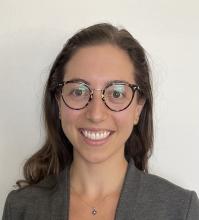- Case numbers and variety/complexity matter; research opportunities matter; prestige and mentorship of faculty matter; and success of recent graduates as a marker of training quality matters.
- Find the program(s) that resonates with your values and priorities to help you retain your “you.”

At the end of my first year of medical school, I found myself standing on the summit of Montserrat in Catalonia, Spain, listening to the wind as it whips up the jagged peaks around me. I felt alive and grounded in the nature around me, my legs burning from the near vertical last mile up the mountain, my eyes taking in the vast horizon. The last year had cemented my desire to become a cardiothoracic surgeon. It was both exhilarating and terrifying. Would I be able to meld my love for the operating room and the associated demands of a career in cardiac surgery with my love for life outside the hospital? Many narratives I had heard told me no, but there was also a narrative that the culture in surgery was changing. Standing on the mountain, I realized that it is a choice—I could let my career become my life or I could not. And at that moment, I decided to both commit to a career in cardiac surgery and to climb more mountains.
Fast forward 2 years, and I am in the midst of surgery sub-internships and preparing for the interview season ahead. It is daunting. Thirty-three I-6 programs, 49 spots, and a handful of general surgery programs that will facilitate pursuit of CT fellowship via a traditional or 4+3 model. The self-doubt simmers ever-present in my head. Have I done enough? Am I a good enough applicant? Will I get interviews—and to places where I want to go? How will I know it’s the right program for me?
In standard Type-A fashion, I made a list: “Things that are important to me.” Requirement: these had to be the things in my life, excluding medicine, I valued presently and knew I wanted to continue to prioritize moving forward. As I often do when stressed, I reflected back on the summit of Montserrat and my commitment in that moment to making my own choices. Unsurprisingly, the first point on my list was “goal: climb more mountains.” It is both an experience I wanted to continue to have and also my metaphor for taking advantage of the opportunities that life offers.
My 10-point list was the most honest self-reflection, the things that make me “me”: Being an athlete, sister, daughter, partner, and friend. My love for cooking, going out to new restaurants, and getting lost in the pages of a good book. My desire for new experiences that challenge me out of my comfort zone and travels that expand my perspective on the world. I didn’t want to look up in 6 to 8 years at the end of residency and realize I had lost my sense of self.
The application/interview season was stressful. I was reminded of a saying from my years as a competitive swimmer: “Stay in your own lane and focus on your race.” I knew I would be happiest at a residency program with a culture that matched my values. I did not apply to programs in locations where I could not imagine living, because I knew I could not live there for the better part of a decade and be happy. When deciding where to interview, I considered only programs that aligned with both my professional and personal goals. A program in a city with an accessible airport that would make it easier to visit the important people in my life on golden weekends won out over a program that didn’t.
I could not control how programs perceived my application or interview compared to other applicants, or whether I “beat” them. I could only control my own actions and take confidence in my application and the work I had put in during 3 years of cardiac surgery research, scholarships/awards, grades, and extracurriculars. There were many distractions—why haven’t I heard from Program X? Will Program Y release more interview dates? Is Program Z really as great as its reputation? But the things that kept me grounded were the things on my list. I prioritized getting away from Zoom and spending time with family, my boyfriend, and friends. I bought a new cookbook and delighted in the recipes. I worked out a lot.
When it came time make my final rank list for the Match, I struggled with the decision since so many programs offered truly excellent training opportunities. Yes, case numbers and variety/complexity matter; research opportunities matter; prestige and mentorship of faculty matter; and success of recent graduates as a marker of training quality matters. At the end of residency, I want to be a competent cardiothoracic surgeon capable of operating independently and on the path toward excellence. But I also loved the person I have grown to become, and didn’t—and don’t—want to lose that trajectory. My final rank decisions were as much about the minute differences in training experience as about culture and fit. The environment and the surgeons who would shape me into who I would be—in addition to what I would be—as a CT surgeon. Faculty and co-residents who would understand that I will stay late, come in early, drop everything in the middle of the night on-call, but also would respect and encourage my pursuit of life outside the hospital. I needed a place were I can be Lauren Levy. not just “Lauren Levy, MD.”
Thankfully, I matched to a residency program that respects my “Important Things” as essential, not just wishful thinking. For current and future CT surgery applicants, I encourage you to make your own list of important outside-medicine things. Find the program(s) that resonates with your values and priorities to help you retain your “you.” I don’t get to climb mountains everyday—I am a cardiothoracic surgery resident after all—but I do get to climb them more often, and that makes me as happy as becoming a cardiothoracic surgeon.
The opinions expressed in this article are those of the author and do not necessarily reflect the views of The Society of Thoracic Surgeons.
